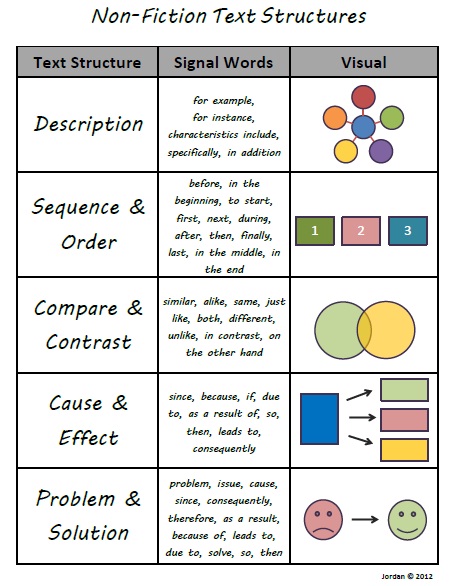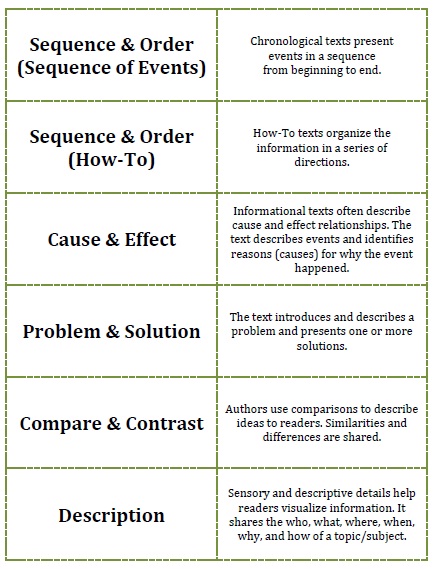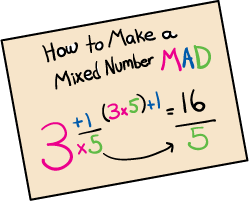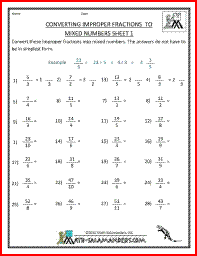Teaching expository text should cover several things, including:
- Text structure. This can include comparison-contrast, sequence, or even cause/effect. Questions related to the structure are always included on standardized testing! An example from today would be why did the author write paragraph 2 before paragraph 3?
- Text elements. This has several parts. This might include bold words, italics, maps, graphics, sidebars, captions, etc.
- Purpose and use. Kids love procedural text but there's a lot more to it!
A few resources to share!
FREE Expository text question cards for before/after reading. Click here to download.

I LOVE this FREE sheet to teach text structures! Visual! Yes! Click here to download.

From the same site as the above freebie, an awesome scramble and sort activity! Click here to get it.

Overall, this blog post pretty much rocks expository text and includes a ton of resources throughout with links to other resources at the bottom. Love it! Click here to visit.
Additionally, I have found several resources that I'm not choosing to post for one big reason, they just aren't particularly useful. I may have access to cute "Clue phrases" for text structure, but I've read what they will read. I've seen their tests. I've gazed into my teacher crystal ball and do not see any text that actually uses them. That sounds stubborn, but so be it. By the time they get to fifth grade they are expected to draw conclusions. It doesn't help them to give them training wheels they won't be able to take with them into a test. I'd rather spend our valuable class time learning how to analyze rather than teach them to look for clue phrases that aren't used much past 3rd grade. Know what I mean?
Let me know what you think!




















